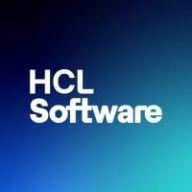

HCL Domino and Microsoft Power Apps compete in the realm of collaboration and application development platforms. Microsoft Power Apps appears to have the upper hand due to its ease of integration with Microsoft tools and user-friendliness for no-code development.
Features: HCL Domino provides robust security, strong integration capabilities, and a stable environment for both messaging and application development. It is compatible with diverse operating systems and supports workflow applications effectively. Microsoft Power Apps offers seamless data connectivity, integration with Microsoft tools, and is highly adaptable for developing no-code applications, allowing swift app creation and enhancing user satisfaction.
Room for Improvement: HCL Domino needs to improve its performance, user interface, and expand third-party integrations, including better compatibility with Microsoft 365. Enhancements in server speed and operational flexibility are also desired. For Microsoft Power Apps, simplifying integration with non-Microsoft products, providing a clearer licensing model, and offering better documentation could enhance user experience. Users also indicate that setup challenges and more intuitive features are needed.
Ease of Deployment and Customer Service: HCL Domino has a strong presence in on-premises environments, while Microsoft Power Apps offers flexible deployment across various cloud models. HCL Domino is generally praised for its technical support, though customer service opinions are mixed. Microsoft Power Apps faces criticism for its complex technical support and customer service, indicating challenges in swift resolution of issues.
Pricing and ROI: HCL Domino's pricing can be high, with complex licensing, posing a barrier for some users, and its ROI is contentious due to the annual costs. Microsoft Power Apps is considered a cost-effective solution within the Microsoft ecosystem, with fair pricing but potentially high costs for non-Microsoft users. The ROI for Power Apps is seen as positive, attributed to efficient app development and integration opportunities, which promote scaling and broader adoption.
The connection between Power Apps and Power BI simplifies generating and presenting reports, alleviating the workload and enhancing productivity.
The aim is to create a cleaner interface to replace spreadsheets, thus standardizing processes and improving efficiency.
Their assistance was crucial as we developed the solutions.
Microsoft's technical support is around a seven to eight.
If it is flexible and includes premium connectors, scalability is easy.
I would rate the stability of Microsoft Power Apps as a nine out of ten.
In-line editing of documents and a document viewer are functionalities that would be beneficial.
These tools should be intuitive for business users who will need at least a week of training to use them effectively.
This would assist business process users who lack coding knowledge.
The integration of Microsoft's autonomous AI agents would be an excellent enhancement for Power Apps.
The Notes client is very expensive, costing around $105 per client.
For small to medium enterprises, it is affordable, especially with Microsoft Enterprise licensing.
For more elaborate work, an upgrade to an enterprise license, costing around $35 per license, is needed.
Its hybrid nature allows the use of both web-based applications and Notes client-based applications.
It integrates seamlessly with Power Automate for process automation and connects with email, SharePoint, Power BI, and MS Teams, facilitating everyday processes.
If we are using Outlook or Power BI for our reports, the integration is easier because it is within the Microsoft ecosystem.
The most valuable features for us are predominantly on the user interface front.


HCL Domino (formerly IBM Domino) is a secure, enterprise-grade, application development platform. From IT to business, HCL Domino is the only low to pro-code application development platform that allows your business to build robust applications to solve workflow and process challenges fast. HCL Domino powers businesses around the world with 15,000 customers and 10 million apps built on our platform. HCL Domino has always been a secure, rock-solid, and proven solution.
Microsoft Power Apps is a rapid application development software and low-code development platform. The solution consists of a suite of apps, services, connectors, and a data platform. It provides an environment for building custom apps which is suitable for different businesses.
Microsoft Power Apps allows users to not only build applications, but also connect them to Microsoft's other sources, including the underlying data platform Microsoft Dataverse, as well as online and on-premise sources such as SharePoint, Dynamics 365, and Microsoft 365. The applications built using Microsoft Power Apps have a responsive design that makes them suitable for work in browsers and on mobile applications on different devices.
The no-code side of the product makes it suitable for complete beginners to app building, allowing them to easily create fully functional applications with many features. The solution also has a specialized platform for developers where specialists can access data and metadata, create custom connectors, integrate with external data, and apply business logic. The solution allows users to create three types of apps: canvas, model-driven, and portal. They are made using:
Microsoft Power Apps Features
The three different design tools of the solution, Power Apps Studio, App Designer, and Power Apps Portals Studio, come with various features which allow users to utilize the tools. Some of these features include:
Microsoft Power Apps Benefits
The product brings various benefits to organizations and individuals who utilize it. Some of the biggest advantages of Microsoft Power Apps include:
Reviews from Real Users
An IT Specialist (INFOSEC) at a government appreciates this tool because it is low-code, low learning curve, and reduces manpower.
Rafael T., a data engineer at NTT Security, likes Microsoft Power Apps, because it is great for making apps quickly, has helpful support, and integrates with Power BI.
We monitor all Rapid Application Development Software reviews to prevent fraudulent reviews and keep review quality high. We do not post reviews by company employees or direct competitors. We validate each review for authenticity via cross-reference with LinkedIn, and personal follow-up with the reviewer when necessary.